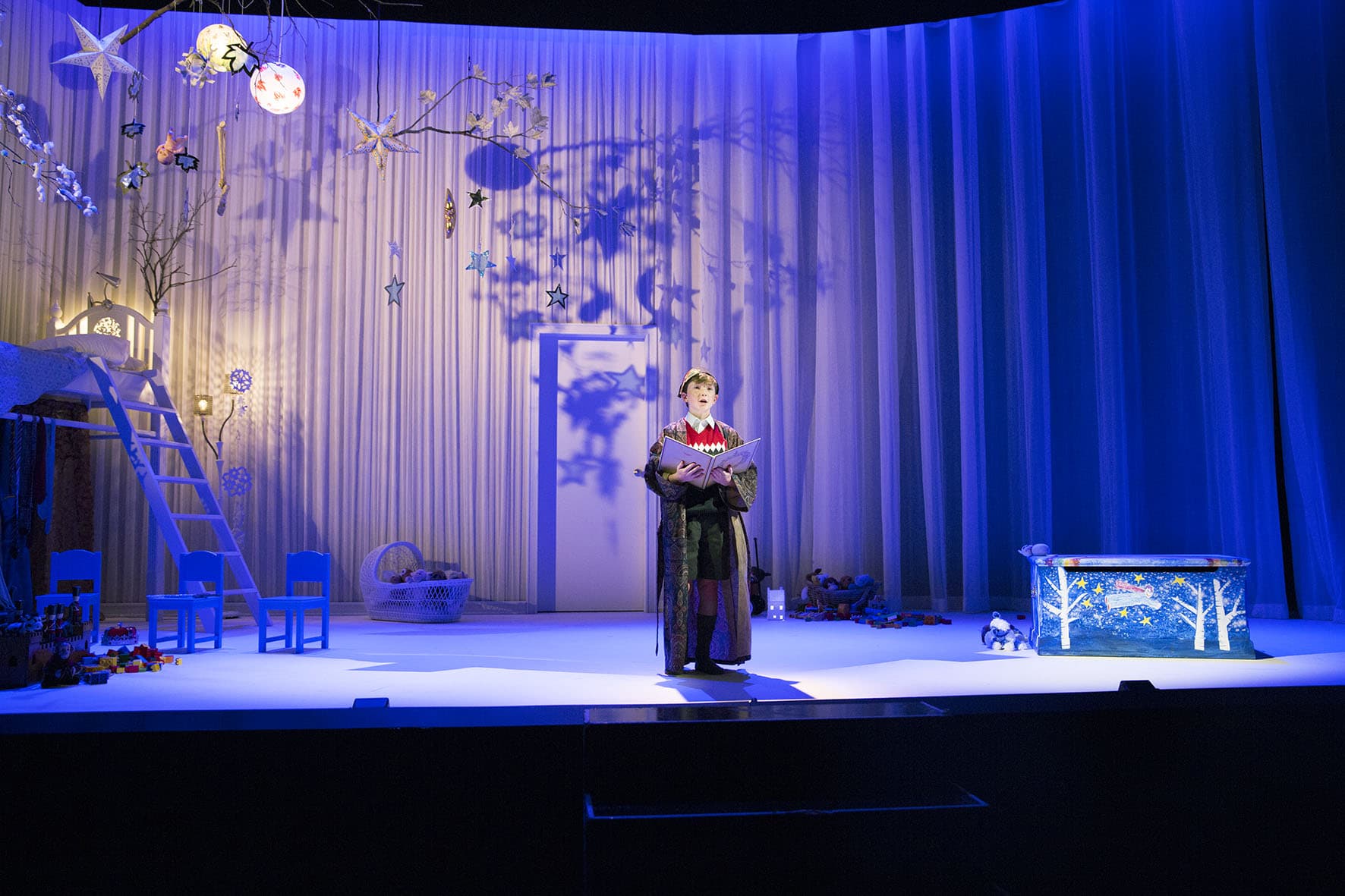Review: The Winter’s Tale, Bell Shakespeare
The Winter’s Tale is a rarely-performed and uneven, but occasionally glittering, part of Shakespeare’s canon. Half-tragedy, half-comedy, it is a bit of a beast to stage with clarity. Bell Shakespeare, in John Bell’s playful production, comes close to getting it right.
By framing the story through the eyes of son Mamillius, who dies in the first act, off-stage, we have found our narrative compass: Mamillius watches over his family, torn apart by the jealousy of his father Leontes, who suspects his wife of having an affair. Then punished by the Oracle, Mamillus dies and newborn daughter Perdita is spirited away to a rural village, in hopes that her life will be saved.

The first act is a drama, a jealousy-tragedy, reminiscent in many ways of Othello; the latter half becomes a pastoral comedy in the vein of Twelfth Night. This rapid change in tone provides the core disconnect of the play, but Bell keeps it anchored with a sense of consistency by Mamillius’ child’s play. The mark of his storytelling and perspective are all over the production: toy bears illuminated by shadow puppets (because, yes, this is the “exit, pursued by a bear” play), bright lights and colours, toy furniture and props. Even the musical interludes that pepper Shakespeare’s comic canon make more sense when they’re borne from Mamillius’ watchful inner eye.
Designer Stephen Curtis has built a world that blossoms from a child’s nursery into a dreamscape, a mind-map of the world; when Matthew Marshall’s lighting design complements it with varying levels of shadow and blue, it becomes all the more magical.
Of course, everything works out fine in the end of the play: families are reunited, true loves are wed, and some people who died turn out to have been alive all along. The only character who doesn’t get a happy ending is Mamillius, and Bell has found the injustice in that and reminds us of it, gently, poignantly, towards the ending: the little boy left alone on stage, invisible, in a whole different realm from the rest of his happy family.
This jolt of melancholy is affecting and welcome, and the show’s entire perspective is fresh and successful, considering the unevenness of the source material. There are still a few issues: the first act feels long, and its pacing is not quite right; and the mix of comedy and envious tension shifts too abruptly, creating a sense of unease, and not the good kind.
But the performances are excellent, particularly by Rory Potter as Mamillius, one of the best young actors in Sydney, who is watchful and curious and somewhat pensive. Michelle Doake is skillfully powerful and comic as Paulina and Dorcas (and her singing voice is always a treat). Also a highlight is the eternally wry Philip Dodd as Camillo, who is commendably aware of his long body and the comic potential of his lively face.
It may be impossible to work The Winter’s Tale into a play of immaculate structure and sense, but Bell has come very close.


